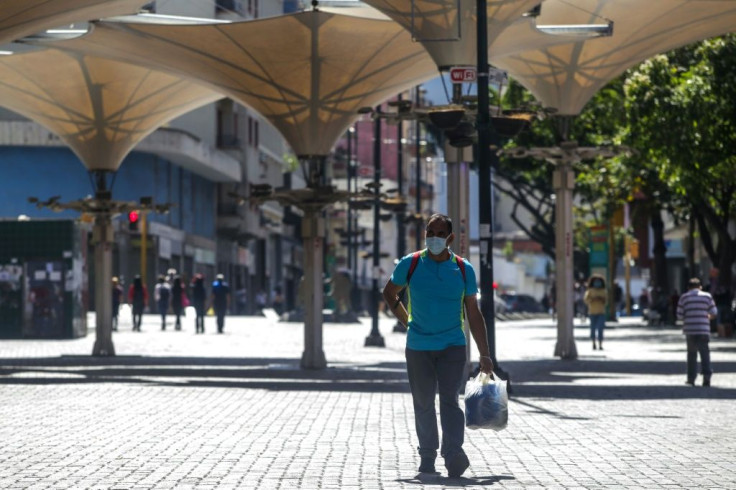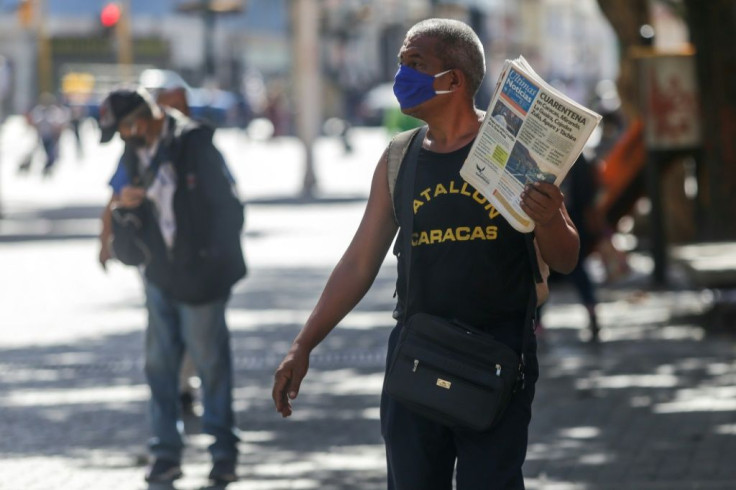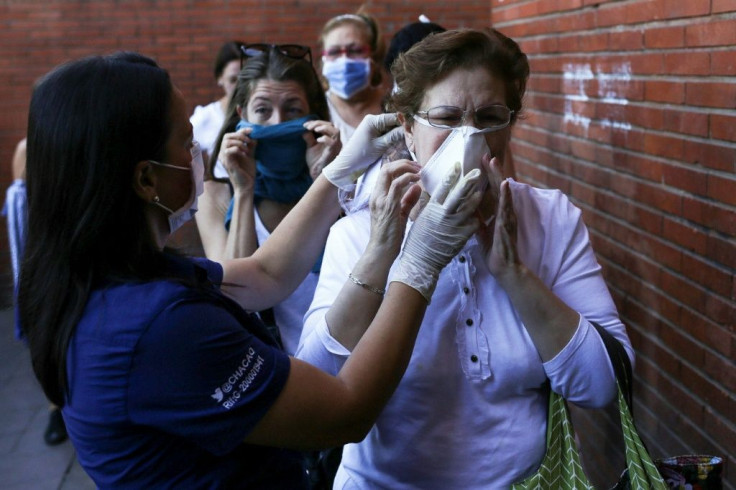Crisis-hit Venezuelan Capital In Lockdown Over New Threat: Coronavirus
People in crisis-weary Caracas woke up Monday to a "collective quarantine" after President Nicolas Maduro ordered the Venezuelan capital's six million population to stay at home to curb the spread of the coronavirus.
Security forces on motorcycles and in vehicles patrolled the streets to enforce the containment measures and ensure that only food stores remained open.
Pedestrians in Caracas appeared to be mostly following Maduro's slogan of: "protective mask and gloves for everyone."
"The measures seem good to me," said Sonia Nicucci, 45, from behind her mask as she walked to the Italian consulate to get passports for her children.

"After that I'm going straight home. If something happens, well, I'm wouldn't be sure what to do, because the hospitals here are, you know how they are."
Venezuelan hospitals have little. "We hardly have 5 percent of the medicine stocks we need," Douglas Leon Natera, head of the Venezuelan Medical Federation, told AFP.
Human rights organizations warned the country faced catastrophic consequences from the pandemic which threatens to overwhelm its crumbling health system.
The head of the Norwegian Refugee Council placed Venezuela in the same category as war-torn Syria and Yemen in its preparedness.
Like those countries, "there will be carnage" when the virus reaches parts of Venezuela, warned Jan Egeland, given that "health systems have collapsed."

Huniades Urbina, a member of the National Academy of Medicine, said the country's clinics and hospitals were missing half the surgical material they needed.
"We are not prepared," he said.

To date, Venezuela has confirmed 17 cases of the coronavirus.
Daiana, a 39-year-old office worker, says she wore her mask only when traveling on the subway.
"It's a delicate issue because our health system is on the floor. So I think it's better to take preventive measures," she said.
"We have to stay isolated as much as we can but I don't think we should exaggerate."
With sanitizing gels and protective masks scarce even in the days of ordinary crisis, Maduro exhorted people to make their own masks, while reassuring the population that the government was working to replenish stocks.
The government has shut down all schools and universities as well as air links to Europe, Colombia, the Dominican Republic and Panama.
Caracas is the first Latin American capital to be locked-down as part of measures against the coronavirus.
Apart from the capital, six other Venezuelan states have been placed under quarantine, meaning police will enforce a ban on people leaving their homes, except to get food or go to hospital.
Maduro previously banned flights to and from Europe, Colombia, Panama and the Dominican Republic. He also suspended school and university classes, and sports events.
Maduro has said his response was inspired by that of China, one of Venezuela's main commercial allies.
Omar, a 22-year-old mechanic, said he's not afraid of getting bored at home, "but of losing money. If I don't work, I don't earn anything."
Eckmundo Castillo, 58, appeared to be taking the scare lightly. He shook hands with an acquaintance in the street without mask or glove. "I was only touching him to see if he had a fever!" he joked.
At a small foodstore called the Gran Majestic, shop-owner Jose said he had opened as usual but was concerned about what would happen. "I'm worried above all that we won't have any customers. We haven't put out the tables, we're only doing take-out business."
© Copyright AFP 2024. All rights reserved.





















